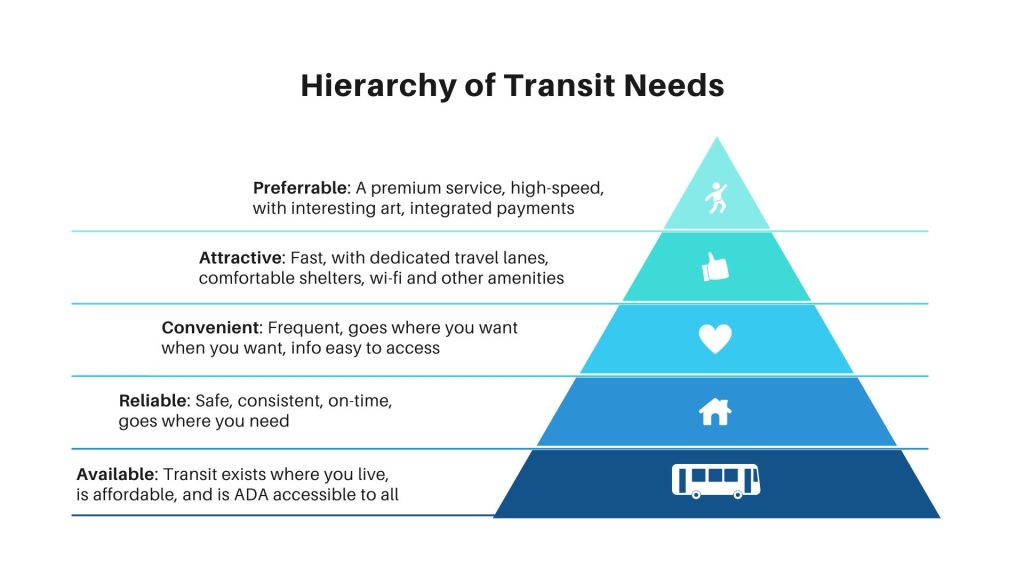TRU advocates for more and better public transportation and other affordable sustainable mobility options, because everyone should be able to get where they need to go, regardless of whether they drive.
TRU Advocacy Priorities
- Increase state transit investment
- Provide the funding necessary for agencies statewide to restore and improve transit service, both this year and long-term
- Restore bus reliability
- End the no-show bus crisis through competitive driver wages and working conditions at both DDOT and SMART
- Boost regional transit investment
- Raise the funding needed to improve and expand Detroit area transit by getting the RTA law amended then getting an RTA measure back on the ballot and passed
- Minimize the climate crisis by boosting transit and other sustainable mobility
- Improve how Michigan prioritizes transportation investments
- Improve transit access and accessibility
How TRU Advocacy Works:
Through lived experience, allies, and research, we identify problems, gaps, and other opportunities to improve public transit. We identify what change needs to be made and who has the power to make those changes, with special focus on transit agencies, the entities that fund them, and the policies they work under. Then we advocate to those decision-makers to make the improvements that are needed, bringing riders, allies, media, and other influencers on board to strengthen our case.
An Example: We experienced, heard complaints about, and found data that a lot of buses were not showing up when they were supposed to. We identified that DDOT and SMART were struggling to hire and retain enough drivers to operate their scheduled service, even after making service cuts. Analysis found that their drivers received substantially lower wages than jobs with similar requirements and that when other transit agencies increased wages, they were much more able to hire and retain the drivers they needed. So we urged DDOT and SMART to boost driver wages as a critical part of resolving the no-show bus crisis. While not the only solution, it was clearly a critical one.
That’s how we started our Help Drivers Help Riders campaign. We documented all this in our Save Our Service report and presented this information to DDOT and SMART management as well as to the SMART Board of Directors (who oversee SMART), Mayor Duggan (who oversees DDOT), Detroit City Council (who sets DDOT’s budget), and the County Executives who appoint the SMART Board of Directors. We mobilized dozens of riders and other allies to demand driver raises and drew media attention to the problem. While it took more than a year, Mayor Duggan increased DDOT driver wages and SMART management has pledged to raise wages as well. We will continue to watchdog bus service to see if it will be enough to resolve the no-show bus crisis.
Advocacy Prioritization: Hierarchy of Transit Needs
While there are hundreds of ways public transit could and should be improved in the Detroit region, not all improvements are equally important nor as urgent or timely. That’s why TRU prioritizes our advocacy in three main ways:
- What’s most essential for functional reliable transit service, especially for the people who depend on it
- Where can TRU’s involvement have the greatest impact at this time
- What are we funded to do

